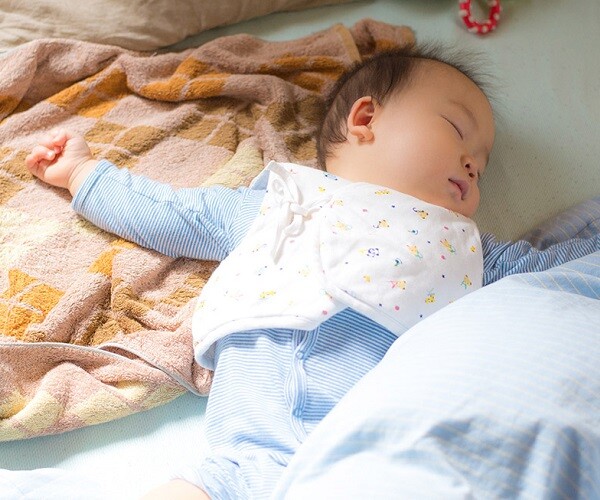Sleeping positions play a crucial role in a child’s overall well-being and development. Uncomfortable sleeping postures can lead to aches and pains, affecting their focus and learning abilities. Therefore, parents need to guide their children towards adopting healthier sleeping habits to promote their physical growth and boost their self-confidence. Here are three sleeping positions that parents should be mindful of and help their children avoid:


Prone Sleeping Position
While it is common to see children sleeping on their stomachs, this position can pose several health risks. Sleeping prone exerts pressure on the chest and abdomen, affecting breathing and blood circulation.
As the child lies face down, the pressure on the chest can make breathing more challenging, resulting in oxygen deprivation. Over time, this can lead to insufficient oxygen supply to the brain, impacting cognitive development and concentration.
Additionally, prone sleeping can increase the risk of digestive issues. This position puts pressure on the stomach, potentially causing acid reflux and making it difficult for the child to sleep peacefully.
Furthermore, it can negatively affect the child’s musculoskeletal development. Sleeping prone does not provide adequate support for the spine and may lead to spinal misalignment or uneven joint development. This can result in back or neck pain as the child grows, impacting their mobility.
Parents should encourage their children to sleep in safer positions, such as on their backs or sides. Creating a comfortable sleeping environment with appropriate pillows and mattresses is also essential to ensure a good night’s rest and promote healthy growth.

Child sleeping prone.

Sleeping with the Head Covered
Some children feel more secure sleeping with their heads covered by a blanket or pillow. However, this practice can lead to oxygen deprivation and impact the quality of sleep and healthy brain development.
When a child’s face is covered by a blanket or pillow, the air in the confined space can become stale and stuffy, reducing the oxygen intake. This can cause sleep apnea, resulting in shallow and interrupted sleep.
Moreover, oxygen deprivation not only slows down the body’s recovery process but also impairs the development of the nervous system. The brain requires an adequate supply of oxygen to function optimally and develop cognitive functions. Insufficient oxygen can lead to issues with concentration, learning, and memory.

Child sleeping with head covered.
Furthermore, covering the head can induce anxiety and stress in some children. While some children feel safer being enveloped, others may feel uneasy and claustrophobic. This can lead to frequent night wakings or difficulty falling asleep.
To prevent these issues, parents should encourage their children to sleep in a well-ventilated and safe environment. Creating a comfortable sleeping space with fresh air and soft lighting can help children relax and fall asleep more easily.
Additionally, parents can communicate with their children about feeling secure and comfortable during sleep, assuring them that they don’t need to cover their heads to feel protected.

Mouth Breathing During Sleep
When children have a cold or a stuffy nose, they often breathe through their mouths. If this persists, it can impact the development of their facial structure, cause oxygen deprivation in the brain, and affect their intelligence.
Prolonged mouth breathing can lead to uneven growth of facial bones, potentially making the face appear longer and narrower. This can also affect the development of the jaw and teeth.
Moreover, mouth breathing is less efficient than nasal breathing. When we breathe through our noses, the air is warmed, cleaned, and moisturized before it reaches the lungs.
In contrast, mouth breathing allows cold, dry, and unfiltered air to enter the lungs, increasing the risk of respiratory infections. This can create a vicious cycle, making children more susceptible to colds and other respiratory ailments.

Child sleeping with mouth open.
Oxygen deprivation in the brain due to mouth breathing can also impact concentration and learning abilities. The brain requires sufficient oxygen to function effectively, and a lack of it can hinder memory, information processing, and attention.
Therefore, parents should pay close attention to their children’s health when they have a cold. Encourage hydration and use nasal decongestants to alleviate stuffiness. If the condition persists, consult a doctor for timely treatment.
How Much Fruit Juice Should Children Drink Daily?
Juice is a delicious and convenient way to ensure your children are getting their daily dose of vitamins and minerals. However, it is important to remember that while fruit juice can be a healthy treat, it should be consumed in moderation. As a concerned parent, it is your responsibility to ensure your child’s health by regulating their juice intake.





































